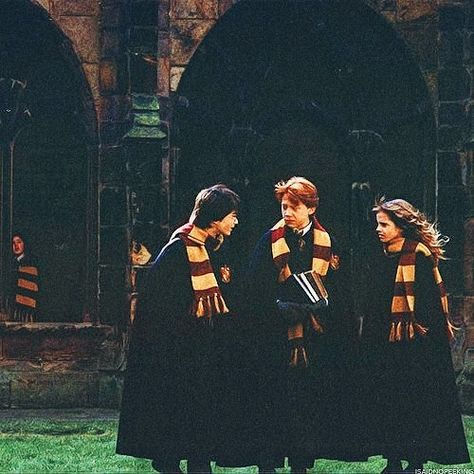Mudbloods, Muggles, and Mirror images: What Harry Potter teaches us about our divided world
- Meenakshi A S
- Jan 14, 2025
- 4 min read
Updated: Mar 20, 2025
If you’ve ever read the Harry Potter series, you know that J.K. Rowling’s magical world isn’t just about wands, spells, and mystical creatures. It’s also a lens through which we can view our own society; full of prejudice, power struggles, and deep divides. The parallels between the Wizarding World and the Muggle world (that’s us) are hard to ignore, especially when it comes to issues like racism, scapegoating, and leadership in times of crisis.
In the Harry Potter universe, blood purity is the hot topic. Muggle-born witches and wizards; people born to non-magical parents are looked down upon by those obsessed with “pure” magical bloodlines. It’s a cruel reminder of how, in our world, people are still discriminated against based on things they have no control over, like the color of their skin.

Racism and Blood Purity: Two Sides of the Same Coin
It’s not hard to see the connection between the way Muggle-borns are treated and the racism we experience in the real world. The term “Mudblood,” used as a derogatory slur against Muggle-born witches and wizards, is no different from the racial slurs we use in our own society to degrade people based on their race. Both systems of oppression are built on the idea that someone’s ancestry,whether magical or not, makes them less than others.
At the heart of it, it’s all about fear. Fear of the “other.” In both worlds, bigotry thrives by making those who are “different” seem less human. And it’s not just a Harry Potter issue, look at the racism we face today. It’s all rooted in the same poisonous ideology that seeks to divide us based on what we can’t control.
The Scapegoat Cycle: Blame, Resentment, and Retaliation
One thing that both our world and the Harry Potter universe share is the tendency to scapegoat entire groups when things go wrong.
In Harry Potter, it’s the Slytherins who bear the brunt of this scapegoating. After some members of the house supported Voldemort, the entire house was blamed for his actions. The complexities of individual choices were ignored. The entire house was assumed to be evil, and the hate was transferred to anyone who was even loosely associated with it.
This happens in real life, too. When a group of people is blamed for society’s problems, they can either fight back or internalize that hatred. Some Slytherins, resentful of the collective blame, turn their anger towards Muggle-borns or Gryffindors. And in our world, marginalized groups who’ve been scapegoated for too long often lash out, creating a never-ending cycle of blame, resentment, and retaliation. It’s an ugly pattern we can’t seem to break.
War: The Ultimate Consequence of Divides
It’s no surprise that, when societies are deeply divided, war is often the result. In the Harry Potter universe, Voldemort’s rise to power led to two Wizarding Wars, where the fight wasn’t just about good vs. evil, it was about blood purity and dominance. Similarly, our world has seen countless wars sparked by ideological divides, like the War on Terror after 9/11.
War leaves scars that go beyond the battlefield. Harry Potter, an orphan of war, represents the deep emotional toll that conflict takes on the next generation. In both worlds, war doesn’t just break people, it destroys families, orphanages, and entire communities. It’s the human cost of failing to resolve our differences without violence.
Leadership in Chaos: When the Wrong People Lead
One of the most striking parallels between Harry Potter and the real world is the way bad leaders rise to power in times of crisis. Cornelius Fudge, the Minister of Magic, refused to believe Voldemort had returned, and his indecision plunged the Wizarding World into chaos. Sound familiar? Look at the way some leaders in our world have mishandled crises, spreading misinformation and deepening divisions instead of uniting people.
Both Fudge and leaders like Donald Trump presided over societies that were already deeply polarized, but instead of seeking solutions, they made things worse. Their inability to act decisively had real consequences, not just for their followers, but for everyone.

A Society Divided: Can We Ever Agree?
The Harry Potter series isn’t just about magical creatures, it’s about the divisions between different groups of people. From the supporters of Voldemort to the pro-Fudge factions, the series shows us just how polarized societies can become. Sound familiar? In today’s world, we’re just as divided, whether it’s in politics, race, or ideology.
Just like wizards refusing to accept the return of Voldemort, people in our world often refuse to accept uncomfortable truths. Whether it’s about racism, climate change, or political corruption, finding common ground seems harder than ever.
Final Thoughts
The Harry Potter series may be fictional, but the issues it explores are very much real. From racism to war, bad leadership to the cycles of division, these are struggles that exist in our world every day. The fight for justice, equality, and understanding is not just a battle for wizards; it’s one we all face.
So, the next time someone says racism isn’t a problem anymore or that society has “progressed past” bigotry, remind them of this: prejudice doesn’t vanish, it evolves. The key to breaking this cycle is education, dialogue, and understanding. Whether we’re waving wands or simply using our words, we can all help make the world a little bit better.
After all, as Dumbledore wisely said, “It is our choices…that show what we truly are, far more than our abilities.”


Comments